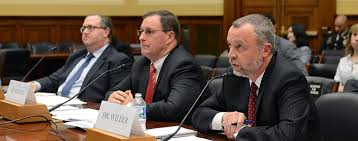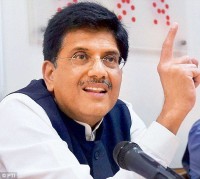
Dr Mohammad Ashraf Ghani, President of the Islamic Republic of Afghanistan,suggested the setting up of a Task Force by the governments of Afghanistan and India as also by chambers of commerce of the two countries create a concrete roadmap and mechanism to take the strategic relationship between India and Afghanistan forward. The Task Force could meet during the Heart of Asia conference in December in India. While delivering his keynote address, at the business meeting jointly organised by FICCI, CII and ASSOCHAM, on the sidelines of the President Ghani’s two-day official visit to India, Dr. Ghani said that the allocation of $1 billion by Prime Minister Narendra Modi towards rebuilding and future of Afghanistan is a statement of belief in the strategic partnership between the two countries. He underlined the need for business chambers of the two countries to contribute towards Afghanistan’s efforts by setting up a target of $10 billion in trade and investment in the next five years. Speaking on the issue of connectivity, he said that cargo flights had major capabilities and could be used for transporting Afghan goods that are in demand to India. And Indian products like tea could travel back to Afghanistan creating a value chain which can be affordable and sustainable. He added that Afghanistan also looked up to India for establishing of dry ports. Dr. Ghani said that there were numerous sectors for mutual cooperation between the two countries. He urged the Indian business community to explore the sectors of medicine, textile, power, solar energy, jewellery, skill development, empowerment of women and infrastructure on priority for trade and investment in Afghanistan. General (Retd.) V K Singh, Minister of State, Ministry of External Affairs, Government of India, said that the strategic partnership between India and Afghanistan has been growing steadily and now is the time to boost this relationship further by taking trade and investment between the two countries to the next level. The private sector needed to explore new avenues for partnership between the two countries and must engage in creating capabilities and capacities, allowing Afghanistan to rebuild its economy and providing employment opportunities to its citizens. Mr. Vikramjit Singh Sahney, senior national Executive Committee Member, FICCI & Immediate Past President SAARC Chamber and Chairman, Sun International, said that as the brave Afghan people send out an unequivocal message that they will not be cowed down by forces of destruction, FICCI is committed to support the vision of a secure and prosperous Afghanistan through action on trade, commerce and investment opportunities – CBM framework under the Heart of Asia Process. FICCI through its initiatives ranging from trade and investment promotion, capacity building, energy security, technology and innovation roadshows to engineer social change, youth and women empowerment and strategic steps to enhance connectivity, was reviving a region, restoring hope, renewing life and redefining Afghanistan’s future. Ms. Shobana Kamineni, President Designate, CII & Executive Vice Chairperson, Apollo Hospitals Enterprise Limited, said that India and Afghanistan were poised for the next level of engagement and suggested collaboration between the Afghan and Indian industries for setting up an India-Afghan Business Forum (IABF) to promote and strengthen economic co-operation between the two countries. Mr. Siddharth Mathur, Principal Consultant, Flentgrid Limited & Senior Managing Committee, ASSOCHAM, said that Indian companies would be pleased to know that significant improvements have been brought in the policy and legal frameworks, banking systems, and custom regulations during the past few years in Afghanistan. The Government of Afghanistan has enacted one of the most liberal investment laws in the region and is committed to offering lower taxes and tariffs to promote investment and trade.





Leave a Reply
You must be logged in to post a comment.